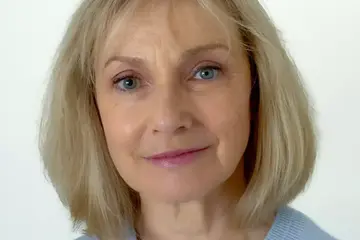
What does change mean for you Part 3: Angela Blacklaw
Whatever route we have taken, it has got us to where we are today, made us the person we are, with the skills and perspectives that we uniquely possess.
For our third ‘change’ interview, we talk to one of the iOpening coaches. Angela Blacklaw worked for many years in senior organisational development roles in the civil service, and now runs her own coaching consultancy. She is also an accomplished singer and songwriter.
What is the biggest change you have made in your working life so far? What provoked that change?
When I decided to take a voluntary exit package and leave my employer of 25 years. I had been a civil servant in several government departments – specialising in individual and organisational learning and change – and had loved most of my time there. Over the years several people had suggested I set up as an independent consultant and I always said I never would. I valued the work I did and was very fond of the community of people that I worked with.
But never say never! Over time, the changes in the way that central government departments wanted to deploy their specialists made me start to think the impossible. When a package was offered I ended up jumping at the chance. I have never regretted it.
When you think about making a change, what is the process for you? Do you weigh up pros and cons, talk to friends and colleagues, seek professional support? And how is that process different, if you compare self-generated and externally motivated changes?
My process involves both conscious and unconscious stages. What I tend to do is talk about the prospective change (I am lucky in that many of my friends and colleagues are professional experts in the area). I rarely get to the point of writing up pros and cons but – having explored them in conversation – I then let the issue ‘stew’ for a little while. I go off and think about other things and when I come back to it, I get a strong intuitive sense of what I want to do. So there is definitely a lot of ‘thinking’ in the pot, but the final decision is largely ‘feeling’: can I live with this? What will it mean to me?
How do you manage the change, once you have made a decision, or been forced to make one?
I find out as much as I can, usually by Googling the hell out of it! Then I work out a plan – what am I going to do to address this? Experience tells me that I seldom follow all of that plan in practice – other ideas occur to me as I go along and I will often see where they take me – but it makes me feel good to have it there as my fallback position.
You run your own business now, but have run others’ businesses in the past. Did you shift from one to the other because you needed to make a change yourself, because you were forced to change (e.g. through redundancy) or was it neither of those things? And, if you were advising someone who wanted to make a change from working for others to working for themselves, or vice versa, what would you suggest?
It was very much my own choice, although it was stimulated by changing working conditions. Among other things, I was worried about becoming a middle-aged grump saying ‘oh, we tried that 20 years ago’. I didn’t want to be that person; I had always been a passionate advocate for change. So that made me want to create an entirely new and fresh set of circumstances for myself to work in.
I’m always nervous about the wisdom of advising others but what worked for me was a) having a financial cushion (not sure I could have been as brave without it) and b) allowing myself to relax rather than dive straight into a new working life. In fact, I took a second undergraduate degree and built up my consultancy business slowly as I studied.
Have you ever regretted a change that you have made and why?
Honestly, no. I believe that whatever route we have taken, it has got us to where we are today, made us the person we are, with the skills and perspectives that we uniquely possess. So why regret anything?
Have you ever regretted not making a change and why?
No – as with my answer above. There are certainly things I wonder about – ‘what would my life be like if I had chosen X, Y or Z?’ – but no regrets. Ultimately, I think we need to choose our change – and then make the very best of it.
The final decision is largely ‘feeling’: can I live with this?; what will it mean to me?



